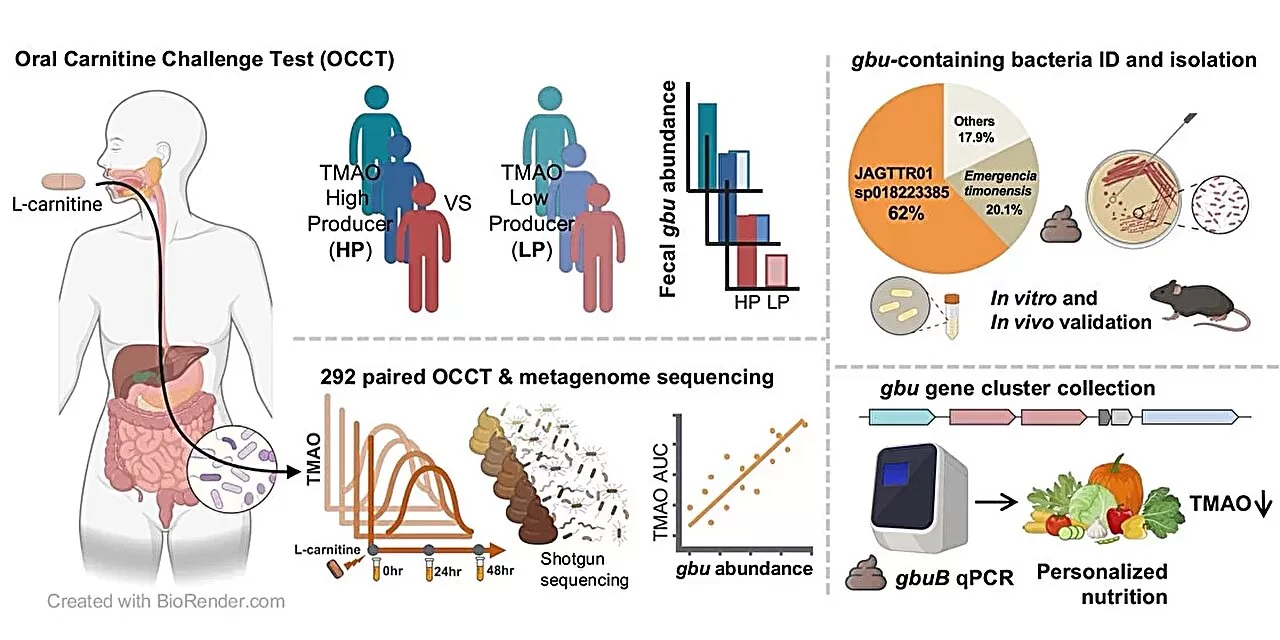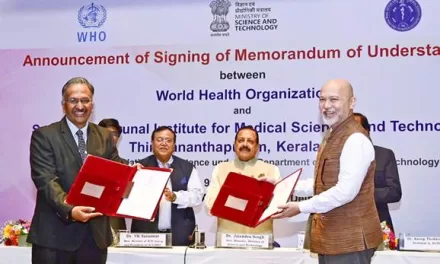New research published in the journal Gut Microbes has identified specific gut microbes that play a crucial role in the link between red meat consumption and increased cardiovascular risk.
The study focused on trimethylamine N-oxide (TMAO), a compound linked to heart disease. TMAO is produced in the gut when certain bacteria metabolize L-carnitine, a nutrient found in red meat.
Previous research has implicated several microbial genes in this process, but this study pinpointed the gbu gene cluster as the key player.
Key Findings:
- Consistent Association: Across multiple cohorts, the study consistently found that individuals with higher levels of TMAO in their blood had significantly higher levels of the gbu gene cluster in their gut microbiota.
- Strong Correlation: Analysis revealed a strong positive correlation between the abundance of the gbuB gene within the gbu cluster and TMAO production.
- Dietary Impact: The study showed that the abundance of gbu genes increased with L-carnitine supplementation and decreased with a plant-based diet.
- Identification of Key Microbe: Researchers successfully isolated a previously uncultured bacterium containing the gbu genes, confirming its role in TMAO production.
- Potential for Personalized Nutrition: These findings suggest that the presence and abundance of gbu-containing gut microbes could serve as valuable biomarkers for individuals at higher risk of cardiovascular disease due to red meat consumption. This information could be used to develop personalized nutrition strategies to mitigate these risks.
Implications:
This research provides valuable insights into the gut-microbiome-heart disease connection. By identifying specific microbial drivers of TMAO production, scientists can explore novel therapeutic approaches, such as:
- Probiotics or prebiotics: To modulate the gut microbiome and reduce the abundance of gbu-containing bacteria.
- Dietary interventions: To further refine dietary recommendations for individuals with specific gut microbial profiles.
Next Steps:
Further research is needed to fully understand the mechanisms underlying the impact of gbu-containing bacteria on cardiovascular health and to translate these findings into effective clinical interventions.
Disclaimer: This news article is for informational purposes only and should not be considered medical advice.
Source: Wei-Kai Wu et al, Gut microbes with the gbu genes determine TMAO production from L-carnitine intake and serve as a biomarker for precision nutrition, Gut Microbes (2024). DOI: 10.1080/19490976.2024.2446374
This article aims to provide a concise and informative summary of the research findings in a clear and engaging manner.












